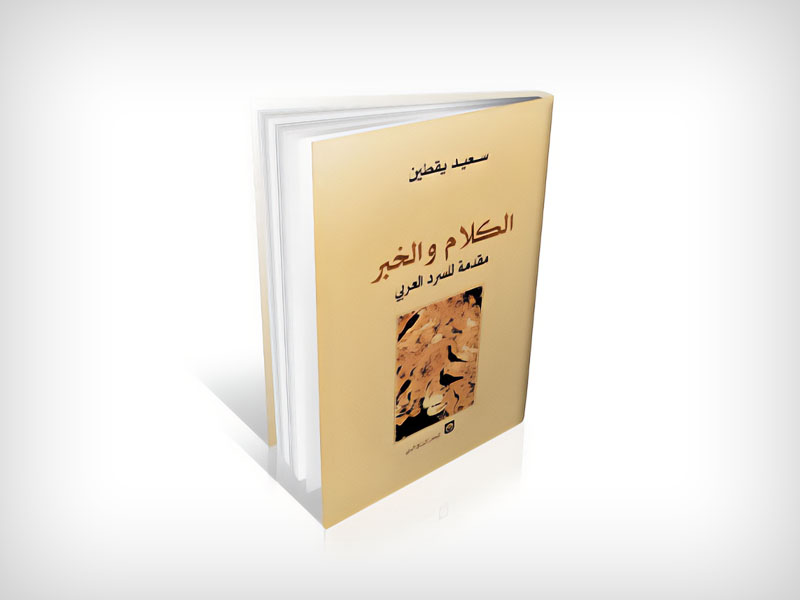The Non-Textual Folk Biography and the Relationship Between Concepts in the Book: "Al Kalam Wal Khabar" by Saeed Yaqtin
Issue 47

Dr. Mohammed Adnani –Morocco
The relationship between concepts in the book "Al Kalam Wal Khabar" would not have been so cohesive without the impact of the text, which acts like a combining element for all concepts; which helps to serve the perception of the researcher.
The text generates various questions on each subject; each subject becomes, by its questions, an introduction to another subject, and thus a great deal of cohesion results. The text helps the reader explore through the different questions and establishes a positive dialogue with the author; this achievement provides several interpretations of the author's propositions.
Professor Yaqtin’s efforts to integrate neglected texts into the history of literature in general, and the Arabic history in particular, which he calls as "nontextulalizing" is an endorsed attempt, because these texts form the core of Arab culture.
The "Folk biography" is a fertile breeding soil from which many genres emerge. They are worthy of study and research, and need to be explored to appreciate their artistic characteristics.
The reader of this remarkable work by professor Said Yaqtin – much like his other works - will grasp Barthes' voice who sees writing as an absolute act that narrows the gap between the differentiation of races.
The subject of "Folk Biography" gained the interest of Professor Yaqtin, and he has given it the lion’s share of his research within the frame of his great academic projects, including this project.
No one interested in narratives is unaware of Professor Yaqtin's efforts in narrative research, not only in exploring issues, but also by studying it with fresh perspectives and by using new tools; this contributed to the development of narrative studies. Therefore, it is not surprising to find a researcher saying, "Yaqtin’s study is pioneering; it has advanced Arab critical studies to the level of theory of literary genres”.
In this study, he revealed a sophisticated awareness of deep problems proposed in the study of the types of Arabic speech, in terms of typology and classification.
Professor Yaqtin’s scientific project is not a closed one, and accommodates for discourse.


































































